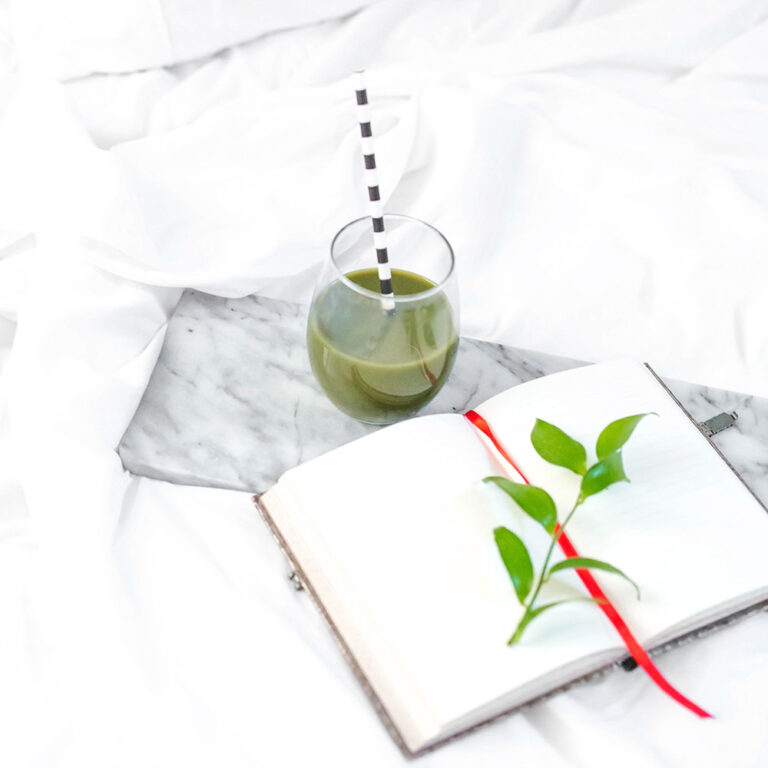Digestive Bitters: An Ancient Solution for Modern Gut Health
Do you have gas, bloating or other digestive problems? Do you just feel tired, or want to know how to address some chronic health problems? Digestive bitters help a lot more than just “digestion”. Digestive bitters are potent herbal extracts that can improve gut health and overall vitality. They even help skin problems. Read on!
Does the name “bitters” make you want to turn your head away?
Or does it conjure up images of gin and tonic?
Let me reassure you; it’s not what it sounds like. 😌
And having a small bottle of bitters on the table is nothing new. Digestive bitters have been used for thousands of years.
In our modern world of processed foods and sugar-laden diets, we’ve largely forgotten one of nature’s most powerful digestive aids: bitter herbs. These traditional remedies, known as digestive bitters, have been used for thousands of years across cultures to support gut health and overall wellness. Today, science is beginning to understand why our ancestors were right about their remarkable benefits.

TAKE BACK YOUR VITALITY!
Learn more about the health benefits of gardening and get some good tips and instruction too.
What Are Digestive Bitters?
Digestive bitters are herbal preparations that combine bitter herbs with complementary ingredients to support healthy digestion. While bitter herbs like yellow gentian root, artichoke leaf, Oregon grape root, and dandelion root form the foundation, these preparations are carefully balanced with other elements to create a complete therapeutic effect.
A proper bitter preparation includes three key components:
- A bitter herb as the primary ingredient
- Carminative/aromatic herbs to aid movement and prevent stagnation
- A balancing element, often something sweet or starchy

The Science Behind Digestive Bitters
When you taste something bitter, it triggers a fascinating cascade of digestive processes. The bitter taste receptors on your tongue signal your brain, which activates the vagus nerve. There is also an argument for direct messaging from your taste buds to more remote areas of your body. This orchestrates a symphony of digestive responses:
- Increased production of digestive enzymes
- Enhanced bile secretion
- Stimulation of stomach acid production
- Stimulation of detox pathways
Recent research has revealed that bitter taste receptors exist not just on our tongues, but throughout our body – in the lungs, kidneys, thyroid, white blood cells, and even the heart. This discovery helps explain why bitters can have such far-reaching effects on our health.
Benefits Beyond Digestion
While primarily known for supporting digestion, bitters offer a range of additional benefits:
- Improved Nutrient Absorption: By optimizing digestive processes, bitters help your body extract more nutrients from food
- Natural Detoxification: Many bitter herbs support liver function and detox pathways
- Appetite Regulation: Bitters can both stimulate appetite when needed and help moderate excessive eating
- Nervous System Support: Many people report a calming effect from taking bitters
- Targeted Health Support: Different bitter herbs offer specific benefits – for example, artichoke leaf can help with skin conditions like eczema and acn
Choosing the Right Digestive Bitters
When selecting or creating a bitter preparation, consider these factors:
Energetics: Match the herbs to your constitution
- If you run cold: Choose warming bitters like mugwort or angelica instead of cooling ones like gentian
- f you have dry tendencies: Opt for moistening roots like burdock or dandelion rather than drying herbs like rosemary
Balance: Never use bitter herbs alone. Always ensure they’re properly balanced with:
- Carminative herbs (like fennel or ginger) to prevent digestive stagnation
- Aromatic herbs for additional therapeutic benefits
- A harmonizing sweet element
Sacred Traditions and Historical Significance
The importance of bitter herbs spans both medicinal and spiritual traditions. One of the earliest documented uses appears in Exodus 12:8, where God commands the Israelites to eat the Passover lamb “with unleavened bread and with bitter herbs.” This wasn’t merely symbolic – the bitter herbs served multiple purposes during this significant meal.
While the bitter herbs represented the bitterness of slavery in Egypt, they also provided practical benefits. The Passover meal was eaten in haste, with participants standing and ready to depart – a naturally stressful situation. The bitter herbs, combined with other elements of the meal, would have helped:
- Calm nervous digestion during an emotionally charged time
- Calm nervous digestion during an emotionally charged time
- Support the body’s stress response through vagus nerve activation
This dual purpose – symbolic meaning and practical health benefits – demonstrates the ancient understanding of bitter herbs’ importance for both physical and spiritual wellness.
The importance of bitter herbs is deeply rooted in human history. They appear in ancient medical texts, religious ceremonies, and traditional healing practices worldwide. From Swedish bitters to Traditional Chinese Medicine to Ayurveda, virtually every healing tradition has incorporated bitter herbs into its pharmacopeia.
Modern Applications
In our current era of processed foods and sweet-trained taste buds, reintroducing bitters may be more important than ever. Many modern health complaints – fatigue, brain fog, anxiety, and depression – can be linked to suboptimal digestion. Rather than viewing bitters as an occasional cleanse, think of them as daily digestive support – similar to how we view hand washing or bathing.
Getting Started with Digestive Bitters
The simplest way to incorporate bitters is to take a small amount before meals. This can be:
- A few drops of a bitter tincture
- A small cup of bitter tea
- Traditional bitter-infused wines or liqueurs
Start slowly and pay attention to how your body responds. As with any herbal preparation, consult with a healthcare provider if you have underlying health conditions or take medications.
A note of caution: Some bitter preparations may not be suitable during pregnancy or for certain medical conditions. Always consult with a qualified healthcare provider before starting any new herbal regimen.
Ready to get started?
Simple Bitter Recipes
Pregnancy-Safe Digestive Bitters
Equipment
- 1 Jar with a lid A pint jar works well
- 1 set of measuring spoons
Materials
- 2 parts Dried Dandelion Root
- 1 part Ginger Root
- 1 part Orange Peel (with the pith)
- 1 part Chamomile Flowers
- 1/2 part Cinnamon Bark
- 80 Proof Vodka: Enough to cover herbs Or use Apple cider Vinegar for a non-alcoholic version. It will be less potent and need refrigeration.
Instructions
- Combine herbs in a clean jar
- Cover with 80-proof vodka or apple cider vinegar for alcohol-free version
- Be sure all the herbs are mixed with the alcohol
- Cover the jar and store in a cool dry place where you will not forget about it
- I put mine on the kitchen counter and cover them with a dish towel
- Let steep 4-6 weeks, shaking about every few days
- Strain out the herbs. Really squeeze them to get all the goodness into your tincture
- Pour your newly made digestive bitters into a small jar.
- Use anywhere from several drops to 1/4 teaspoon about 10 – 15 minutes before meals
- May also aid relief of upset stomach
Notes
Traditional Digestive Bitters
Traditional Digestive Bitters — Not For Use in Pregnancy
Equipment
- 1 Jar with a lid A pint Jar is a good size
- 1 set of measuring spoons
Materials
- 2 parts gentian root
- 1 part angelica root
- 1 part yellow dock root
- 1 part orange peel with the pith
- 1 part cardamom pods slightly crushed
- 1/2 part fennel seeds
- 1/4 part licorice root
- Maple syrup to taste – very optional
- 1 pint 80 proof vodka enough to cover herbs
Instructions
- Combine herbs in a clean jar
- Cover with 80-proof vodka
- Put lid on jar and place in a cool dark spot. I put it on my kitchen counter and cover with a towel
- Let steep 6 – 8 weeks shaking it every few days
- Strain the herbs out of the liquid. Squeeze them rally well to get all the goodness into the tincture. And add maple syrup to taste if using
- Take 10-15 drops before meals
Notes
The Next Steps
Ready to take your gut health journey further? My comprehensive Guide to Self-Care for a Healthy Gut gives you practical, step-by-step guidance for nurturing your digestive wellness. Beyond bitters, discover ancient wisdom and modern science-backed strategies for optimizing your gut health. Learn lifestyle practices that support your body’s natural healing abilities. Take control of your digestive health today – your body will thank you. Click here to get your copy and start your journey to vibrant health from the inside out.
Let’s start a conversation about digestive wellness! Share your biggest gut health challenge in the comments below – whether it’s finding the right herbs, dealing with specific symptoms, or making peace with bitter flavors. Your question might inspire a future post, and together we can build a healthier relationship with our digestion.”
Want to grow some of your own herbs? Check out how to grow ginger in the house. I live in Maine and it works for me.
Modern Research on Bitters
- A 2015 review in Evidence-Based Complementary and Alternative Medicine confirmed bitters’ effects on digestive secretions through vagus nerve activation (McMullen et al., 2015).
- Research published in the Journal of Agricultural and Food Chemistry demonstrated that bitter receptor activation influences glucose metabolism and gut hormone release (Depoortere, 2014).
- Studies in the American Journal of Physiology have shown that bitter taste receptors throughout the body play crucial roles in immune function and inflammation regulation (Lee et al., 2019).
- Mcmullen, Michael. (2017). The Use of Bitter Herbs in Practice. International Journal of Complementary & Alternative Medicine. 6. 10.15406/ijcam.2017.06.00198.







